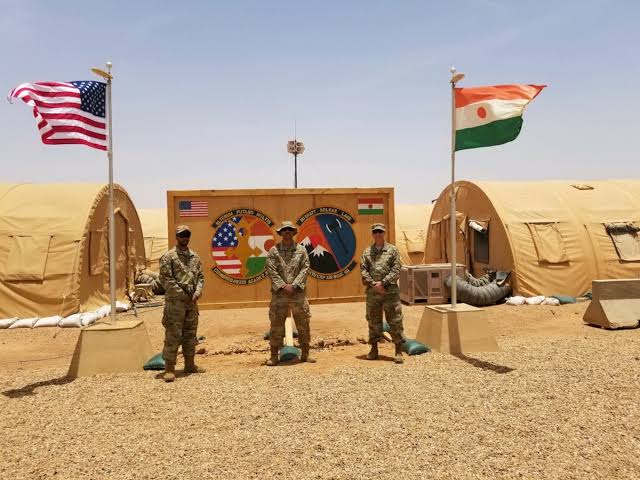In a move that has sent ripples across international military and diplomatic circles, the junta in Niger has officially ended a military agreement that allowed the deployment of US personnel within its borders. This decision was announced on a Saturday, coinciding with a week of intense discussions between a visiting delegation from Washington and Niger’s military leaders.
The terminated agreement had previously enabled the United States to utilize a base in Niger for monitoring jihadist activities across the region. However, the junta’s latest action aligns with its recent pivot towards Russia and follows the expulsion of French troops in December.
Colonel Amadou Abdramane, the military spokesperson for Niger, delivered a potent statement on national television, declaring the US presence in Niger as “illegal” and a violation of “constitutional and democratic rules.” He emphasized the necessity for the sovereign people of Niger to be consulted on foreign military installations on their land.
Further straining relations, Col. Abdramane accused the US delegation of alleging a clandestine uranium supply deal between Niger and Iran, drawing parallels to the contentious prelude to the second Iraq war. He also criticized the US for objecting to Niger’s choice of allies, denouncing the American delegation’s “condescending attitude” and threats of reprisals.
In response, US State Department spokesperson Matthew Miller acknowledged the tensions, noting that the US is closely monitoring the CNSP’s (Niger’s governing military council) trajectory and remains in communication with the council, promising updates as the situation evolves.
The US has had a significant military presence in Niger, with at least 650 personnel stationed there. In 2016, the US invested approximately $100 million in constructing a drone base in Agadez, a major intelligence hub in Western Africa. This facility, crucial for surveillance operations against Islamic State and al-Qaeda-linked militants, now faces operational disruptions following Niger’s airspace closure.
The Sahel region has been plagued by jihadist activity, leading to instability and coups in Niger and neighboring Mali and Burkina Faso, which have now formed a military alliance. The Nigerien army’s overthrow of elected President Mohamed Bazoum last July, citing security concerns, and the subsequent departure of French troops, mark a significant shift in the country’s military and foreign policy.
The junta’s stance towards the US, initially more accommodating, has hardened, casting doubt on the future of US military engagement in Niger. The Biden administration has avoided labeling the military’s actions as a coup, a designation that could halt US aid to Niger. Prior to these events, Niger was a crucial ally for the US in counterterrorism efforts in Africa.
After the July coup, the U.S. temporarily halted drone operations but has recently managed to resume a portion of these missions, primarily focused on ISR (Intelligence, Surveillance, and Reconnaissance) flights for force protection rather than direct counter-terrorism activities.
Meanwhile, in the wake of a recent coup in Niger, the United States and France are actively exploring alternative countries to host their drone bases for counter-terrorism and surveillance missions. The coup in the West African nation has led to a significant reevaluation of their military presence in the region.
The United States had previously warned the Niger junta in August, stating that it might consider military intervention if the country’s military rulers did not return to constitutional order. This warning prompted a response from Russia, cautioning against military intervention by the Economic Community of West African States (ECOWAS), emphasizing that it could lead to a protracted confrontation and further destabilize the Sahel region.
As the situation unfolds, the closure of Niger’s airspace and the uncertain future of the US military’s role in the country pose serious questions about regional security and stability. The ongoing developments highlight the complex interplay between counter-extremism efforts and the intricate political landscape of the region.
